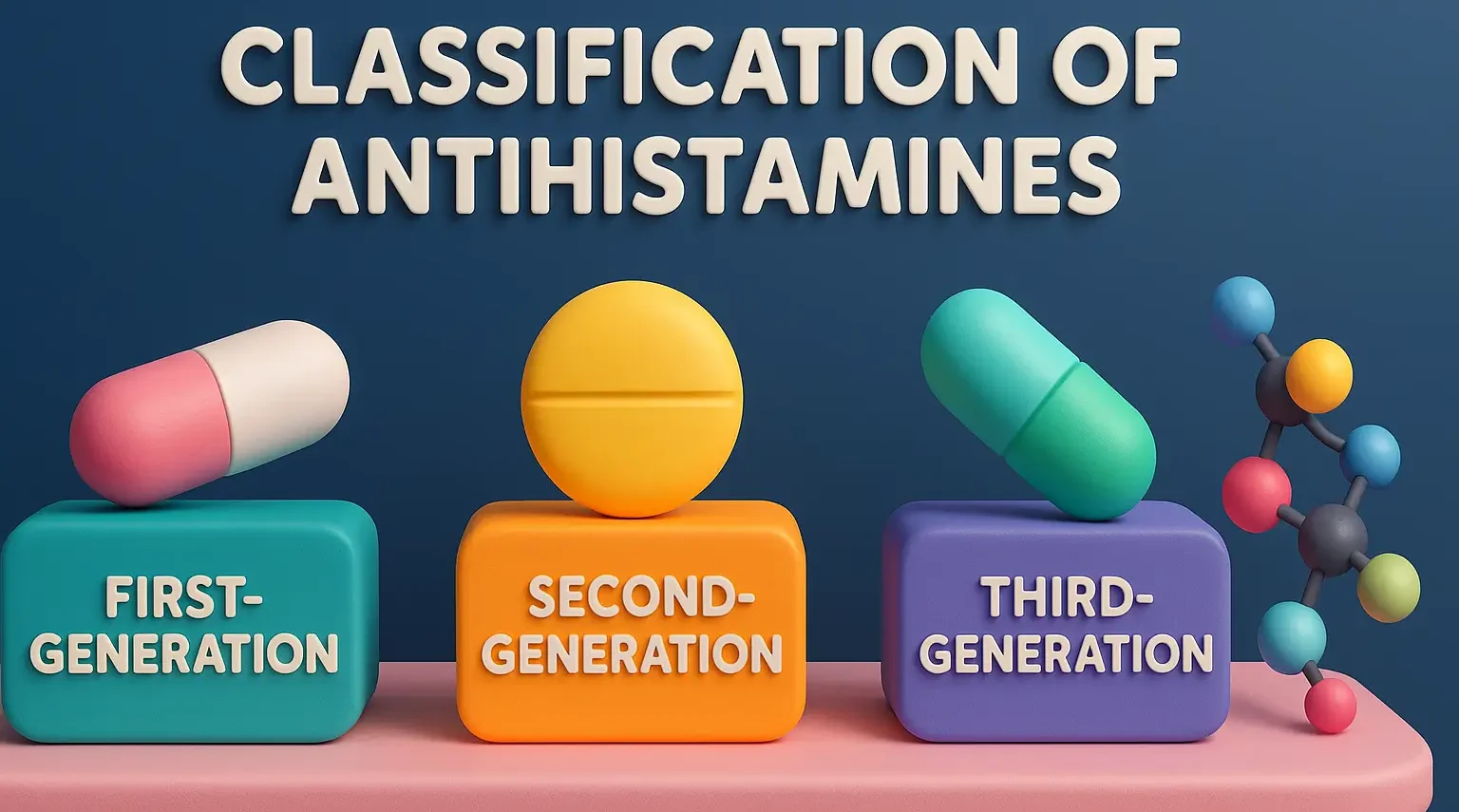Below we have described the classification of antihistamine based on receptor type and generation with their roles in allergy relief and related conditions.
Classification of antihistamine:
- The medications listed can be classified into three main categories: H1-antagonists (antihistamines), H2-antagonists (histamine H2 receptor blockers), and gastric proton-pump inhibitors (PPIs).
- Below is a proper classification of each:
-
H1-Antagonists (Antihistamines):
- These are drugs that block the H1 histamine receptor, often used to treat allergic reactions, motion sickness, and as sedatives.
-
First-Generation H1-Antagonists:
- Diphenhydramine hydrochloride
- Dimenhydrinate
- Doxylamine succinate
- Clemastine fumarate
- Diphenylpyraline hydrochloride
- Triphelenamine hydrochloride
- Chlorcyclizine hydrochloride
- Meclizine hydrochloride
- Buclizine hydrochloride
- Chlorpheniramine maleate
- Triprolidine hydrochloride*
- Phenidamine tartrate
- Promethazine hydrochloride*
- Trimeprazine tartrate
- Cyproheptadine hydrochloride
- Azatidine maleate
-
Second-Generation H1-Antagonists:
- Astemizole (discontinued in some regions due to safety concerns)
- Loratadine
- Cetirizine
- Levocetirizine
-
Mast Cell Stabilizer:
- Cromolyn sodium (although not a true H1-antagonist, it stabilizes mast cells to prevent histamine release and is often grouped with antihistamines for allergic treatment)
-
- These are drugs that block the H1 histamine receptor, often used to treat allergic reactions, motion sickness, and as sedatives.
-
H2-Antagonists (Histamine H2 Receptor Blockers):
- These drugs block the H2 histamine receptor, reducing stomach acid production, often used in the treatment of ulcers and gastroesophageal reflux disease (GERD).
- Cimetidine
- Famotidine
- Ranitidine* (discontinued or restricted in many regions due to safety concerns)
- These drugs block the H2 histamine receptor, reducing stomach acid production, often used in the treatment of ulcers and gastroesophageal reflux disease (GERD).
-
Gastric Proton-Pump Inhibitors (PPIs):
- These inhibit the proton pump in the stomach, reducing acid secretion, commonly used for GERD, peptic ulcers, and other acid-related disorders.
This classification separates the drugs based on their mechanism of action and therapeutic use.

